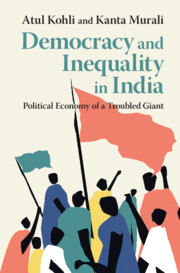Refine search
Actions for selected content:
384 results
6 - The Future of US–ICC Relations
-
- Book:
- Above the Law
- Published online:
- 20 November 2025
- Print publication:
- 22 January 2026, pp 229-245
-
- Chapter
- Export citation
7 - Elites
-
- Book:
- Europe's Nuclear Umbrella
- Published online:
- 17 December 2025
- Print publication:
- 08 January 2026, pp 146-168
-
- Chapter
- Export citation
Chapter 11 - Public Perceptions of the Influence of China’s Rise
- from Part III - Political Guardianship Psychology and Foreign Attitudes
-
- Book:
- The Political Psychology of Citizens in Rising China
- Published online:
- 04 December 2025
- Print publication:
- 08 January 2026, pp 311-342
-
- Chapter
- Export citation
4 - Political Parties
-
- Book:
- Europe's Nuclear Umbrella
- Published online:
- 17 December 2025
- Print publication:
- 08 January 2026, pp 72-100
-
- Chapter
- Export citation
Chapter 12 - Nationalist and International Orientations
- from Part III - Political Guardianship Psychology and Foreign Attitudes
-
- Book:
- The Political Psychology of Citizens in Rising China
- Published online:
- 04 December 2025
- Print publication:
- 08 January 2026, pp 343-370
-
- Chapter
- Export citation
Introduction
-
-
- Book:
- Economic Sanctions from Havana to Baghdad
- Published online:
- 28 November 2025
- Print publication:
- 18 December 2025, pp 1-14
-
- Chapter
-
- You have access
- Open access
- HTML
- Export citation

Europe's Nuclear Umbrella
- Contesting Nuclear Sharing Since 2010
-
- Published online:
- 17 December 2025
- Print publication:
- 08 January 2026
A Status Quo Power in a Changing Region: Iran’s Regionalism in the South Caucasus
-
- Journal:
- Nationalities Papers , FirstView
- Published online by Cambridge University Press:
- 01 December 2025, pp. 1-14
-
- Article
-
- You have access
- Open access
- HTML
- Export citation
Neoclassical realist theory of populist foreign policy
-
- Journal:
- Review of International Studies , First View
- Published online by Cambridge University Press:
- 05 November 2025, pp. 1-20
-
- Article
-
- You have access
- Open access
- HTML
- Export citation
7 - India and the World
- from Part IV - India and the World
-
- Book:
- Democracy and Inequality in India
- Published online:
- 11 October 2025
- Print publication:
- 30 October 2025, pp 267-295
-
- Chapter
- Export citation
Introduction
-
- Book:
- Democracy and Inequality in India
- Published online:
- 11 October 2025
- Print publication:
- 30 October 2025, pp 1-12
-
- Chapter
- Export citation
Ambiguous ambition: The politics of South Korea and the global plastics treaty
-
- Journal:
- Cambridge Prisms: Plastics / Volume 3 / 2025
- Published online by Cambridge University Press:
- 24 October 2025, e38
-
- Article
-
- You have access
- Open access
- HTML
- Export citation

Democracy and Inequality in India
- Political Economy of a Troubled Giant
-
- Published online:
- 11 October 2025
- Print publication:
- 30 October 2025
Battle of sects? Iran and Saudi Arabia’s role conflict
-
- Journal:
- Politics and Religion , First View
- Published online by Cambridge University Press:
- 01 September 2025, pp. 1-26
-
- Article
-
- You have access
- Open access
- HTML
- Export citation
Chapter 5 - 1979–1989
-
- Book:
- The Convention and the Kingdom
- Published online:
- 08 August 2025
- Print publication:
- 28 August 2025, pp 217-275
-
- Chapter
- Export citation
Foreign Policy and Domestic Opposition Spaces under Authoritarianism: Moroccan Political Reconfigurations in Response to Israel’s Wars on Gaza
-
- Journal:
- Government and Opposition / Volume 60 / Issue 4 / October 2025
- Published online by Cambridge University Press:
- 28 August 2025, pp. 1292-1312
-
- Article
-
- You have access
- Open access
- HTML
- Export citation
Can Taiwan survive partisanship? Evidence from two survey experiments
-
- Journal:
- Japanese Journal of Political Science / Volume 26 / Issue 3 / September 2025
- Published online by Cambridge University Press:
- 22 August 2025, pp. 168-188
-
- Article
-
- You have access
- Open access
- HTML
- Export citation
Instrumentalising Islam: The religious soft power strategies of China, Russia, and the US
-
- Journal:
- Review of International Studies , First View
- Published online by Cambridge University Press:
- 22 August 2025, pp. 1-19
-
- Article
-
- You have access
- Open access
- HTML
- Export citation
20 - Foreign Military Interventions, Occupations, and Violent Extremism
- from Part IV - Macro-Level Perspectives
-
-
- Book:
- The Cambridge Handbook of the Psychology of Violent Extremism
- Published online:
- 31 October 2025
- Print publication:
- 07 August 2025, pp 410-425
-
- Chapter
- Export citation
Russian hawks and the state: Conceptualising the role of ideology in Russian foreign and security policies
-
- Journal:
- European Journal of International Security , First View
- Published online by Cambridge University Press:
- 28 July 2025, pp. 1-25
-
- Article
-
- You have access
- Open access
- HTML
- Export citation
